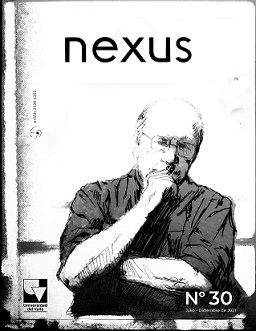Designed posthumanity: the desire for immortality and other deligths
Main Article Content
The reflection departs from the enormous imbalance showed by humanity in the management of technoscience for collective well-being, in the face of particular interests that pursue the immortality, happiness and divinity of an exclusive segment of socio-economic power. Great specialists in the sciences and humanities are racking their brains to avoid global collapse as a consequence of our unlimited growth, while a minority of technocrats dedicate enormous resources to the consolidation of the transhumanist macro-project. In such a way that the efforts to achieve the posthuman give rise to an important discussion regarding the mechanisms of human modification with aspirations for healing or improvement and their diffuse borders. In this view, it is inevitable to oscillate between technophilia and technophobia, especially when the most likely future is expected to be one of a rob-organic posthumanity that will fulfill the ending of the human announced by Foucault. Finally, the notion of post-anthropocentrism emerges thanks to Rosi Braidotti, as a way to turn the phenomenon around and explore a goal of reconciliation in this way, in a broad sense. These ideas derive from the extraordinary work of Donna Haraway and her revolutionary concepts on the metaphor of the cyborg, feminism and the human claim against the future of the nature-culture hybridization.
- Transhumanism
- Inmortality
- Post-humanism
- Cyborgs
- Post-anthropocentrism
Downloads

This work is licensed under a Creative Commons Attribution-NonCommercial-ShareAlike 4.0 International License.
Nexus agrees with the Creative Commons BY NC 4.0 licence.





